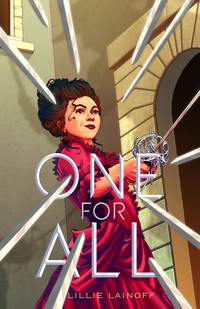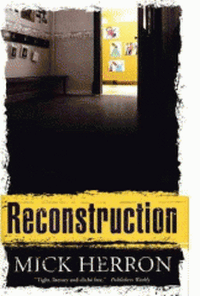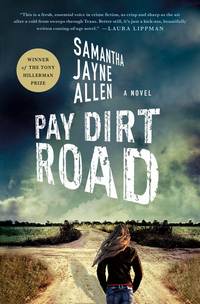 Pay Dirt Road
Pay Dirt Road
DETAILS: Series: Annie McIntyre Mysteries, Volume 1 Publisher: Minotaur Books Publication Date: April 19, 2022 Format: eARC Length: 304 pg. Read Date: March 21, 2022

What’s Pay Dirt Road About?
Annie just graduated from college and moves back to her hometown to decide her next move. That’s the generous way to look at it, anyway, we’ll get back to that in a bit. She’s waiting tables at a local diner—well, the local diner in Garnett, TX. It’s hard to say exactly how large Garnett is, but it’s not big. But given the nearby oil fields, there’s a lot of money as well as a lot of poverty in this smaller town.
Annie and her roommate/cousin spend a lot of their evenings drinking, frequently with others they graduated from high school with. One night they go to a bonfire at the home of one of Annie’s former classmates and unexpectedly run into a co-worker, Victoria. Victoria has overserved herself at this point and doesn’t show signs of slowing down. When Annie decides to leave, she tries to find Victoria but is told that she’s gone off with someone.
That’s the last anyone sees Victoria—the last anyone will admit to, anyway. Her body is found a few days later. Driven by guilt for abandoning her, Annie takes advantage of an offer from her grandfather—former sheriff, now a PI—to work for him and look into the case.
Annie
Annie is what many would call a deeply flawed character, but others would just say human. She’s trapped by her own insecurities as well as ego. She knows she could likely do well in law school—but it would be hard and risky. She could probably talk herself into the challenge, but failing means losing hope she could get away from Garnett, and I don’t think she’s willing to do that.
Like so many people in similar circumstances, not knowing what to do, she drinks, so she doesn’t have to think about it for a while. And drinks a lot. This wouldn’t be a big deal for me as a reader, but Annie spends a lot of time judging her grandfather for his drinking—especially when they’re supposed to be working. She doesn’t say anything to him, she just keeps it inside and lets herself indulge. It’s things like this that make her a wonderful, complex character.
The Sense of Place
I’m vague on a lot about the town of Garnett (size, demographics, etc.), but I also have some concrete visions of certain parts of it. It reminds me a lot of the TV version of Dillon, Texas—which seemed to change size, economic status, and makeup from week to week, depending on what the story called for.
As I type that, I realize that my ideas about Garnett are basically half-Samantha Jayne Allen/half-Friday Night Lights. Annie would basically fit in with the Tyra Colletes and Tim Riggins of the world, not the Jason Streets and Lyla Garritys (although we get glimpses of that part of Garnett, too). I just thought of three paragraphs I could do paralleling the worlds of these two fictional towns, so I’d better move on before this becomes a very different kind of post.
What I kept getting was a feel for the town more than anything—it’s the kind of place where the best and brightest leave after high school, and the big question is: will they come back? You get the impression that if they do, it’s not because they chose to—they either have no choice, or it’s just as a way station–like Annie intends. Some of those in the latter category end up sticking around, usually not by choice. This bleakness covers the whole of the novel—in the successes as well as the failures (and the in-between moments).
At the same time, it seems that few of these people are there by choice. It is their home. Up until two weeks before her death, Victoria had been tied to Garnett, but she had plans. Annie intends on leaving. But when it comes to the land of Garnett? Their families’ acres? There’s a reflexive, instinctive, and deep sense of possession and binding. Everyone knows that Annie’s going to leave town at some point—but when there’s a suggestion that someone is going to buy the land she’s set to eventually inherit? That sets an emotional fire in her that I think surprised even her. You see something similar with Victoria, too. People like them may not like Garnett, may not want to live there but it’s home. It’s their home, and will be.
So, what did I think about Pay Dirt Road?
I don’t know that I can say that I particularly enjoyed this book—by design, it’s not a good time. But it’s a great experience. Allen’s sense of character and sense of place ensures that the reader feels what’s going on. Particularly, but not limited to, Annie’s experiences.
Like with any good mystery—and look at character—Pay Dirt Road is as much about the investigation as it is the history of the characters—for Annie, this goes back to High School, for her family, the history we see goes back far before that. The past illumines the present, and helps the reader—and eventually, Annie and others—to see what’s going on in the present.
Last year, I finally got around to reading The Far Empty by J. Todd Scott. Garnett doesn’t have the same kind of corruption (at least that we see) going on, but it has the sense of setting, of bleakness, and dedication to place/city/home. Between these two books—not to mention Locke’s Bluebird, Bluebird and Kent’s The Dime—I’m starting to think I should focus more of my Crime reading on the Lone Star State.
This could be the beginning of a series—and if it is, I’ll be at the front of the line for the sequel. This could be a stand-alone, and if so, it leaves the characters in a good place—both in terms of closure and promise for the future. Either way, this is a book that’s going to linger in the back of my mind for a while, and I think that’ll be true for others.
Disclaimer: I received this eARC from St. Martin’s Press via NetGalley in exchange for this post—thanks to both for this.

This post contains an affiliate link. If you purchase from it, I will get a small commission at no additional cost to you. As always, opinions are my own.
![]()



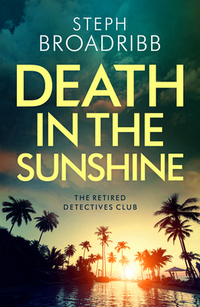

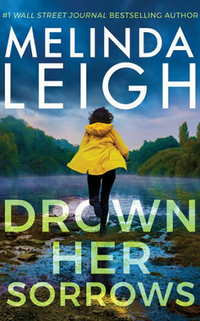

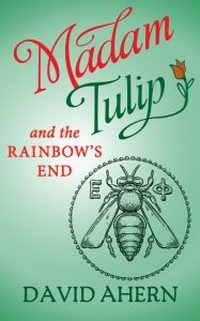

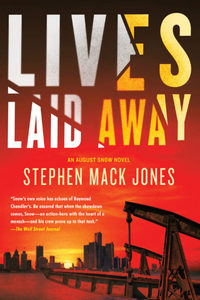
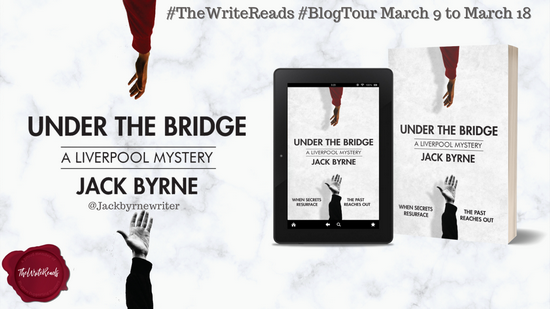
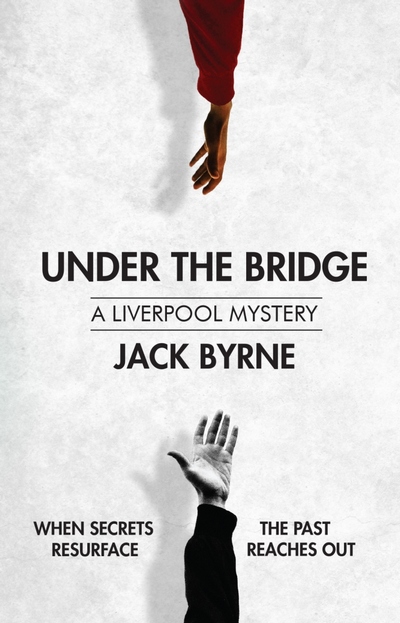


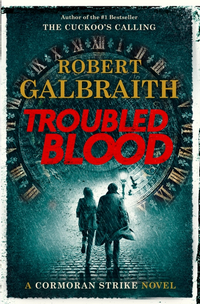
 The Acknowledgments start with, “My thanks, as ever, to my superb editor David Shelley…” Why? What did Shelley do? I cannot be expected to believe that anything was cut, trimmed, or compressed. 900 pages is too long for a P.I. novel.
The Acknowledgments start with, “My thanks, as ever, to my superb editor David Shelley…” Why? What did Shelley do? I cannot be expected to believe that anything was cut, trimmed, or compressed. 900 pages is too long for a P.I. novel.